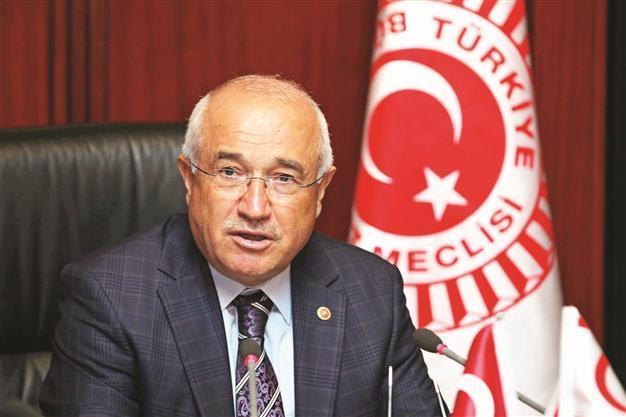Commission disputes freedom of expression
ANKARA - Hürriyet Daily News

Parliamentary speaker Cemil Çiçek leads Constitution Conciliation Commission.
Parliament’s Constitution Conciliation Commission has been unable to reconcile differing ideas on the new charter’s “Freedom of opinion, expression and media” article due to disparate conceptions of what should be restricted, leading to the postponement of an authoritative definition of the clause.The article will be addressed again after discussion of “fundamental rights and liberties.”
Following three day of discussions on the article, the ruling Justice and Development Party (AKP) asked for restrictions on freedom of expression on the conditions of “national security, public order, public morality, protecting others’ rights, protecting private and family life, preventing crimes, maintaining the freedom and impartiality of justice and preventing the advocacy of war, discrimination and hate.”
The Nationalist Movement Party (MHP) also proposed restrictions on freedom of expression and opinion on the cases of “national security, public order and public morality,” but the Republican People’s Party (CHP) objected to the expressions of “public security and public morality” in the article. The party underlined that restrictions on subjective issues such as public morality would result in the violation of fundamental human rights. The CHP also asked that the concept of “public order” be defined, adding that the party welcomed the criteria of “national security” provided the article clearly spelled out what this entailed.
The Peace and Democracy Party (BDP) insisted that people had the freedom to express their opinions in any language they choose and demanded that such a guarantee be included in the charter. The commission also discussed the freedom of press article on Aug. 3, agreeing that “the press is free, and cannot be censured by any means.” The expression of “by any means” was added to the article in order to prevent pressure on newspaper owners and on columnists while inhibiting self-censorship. The new article foresees the lifting of forced closures of broadcasters, although a delineation of the procedures surrounding newspaper closures was postponed due to a lack of reconciliation.
















